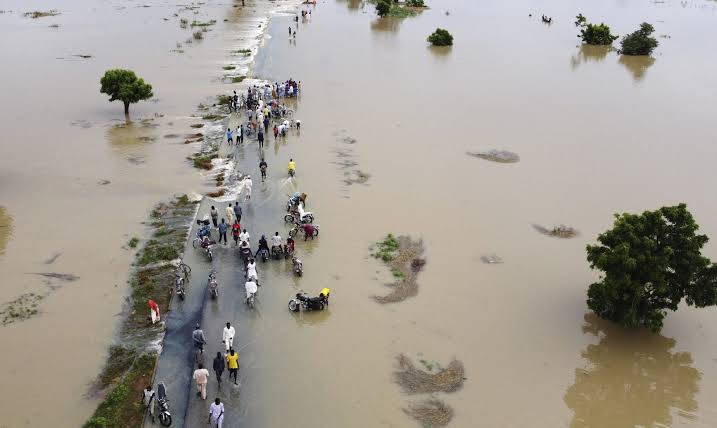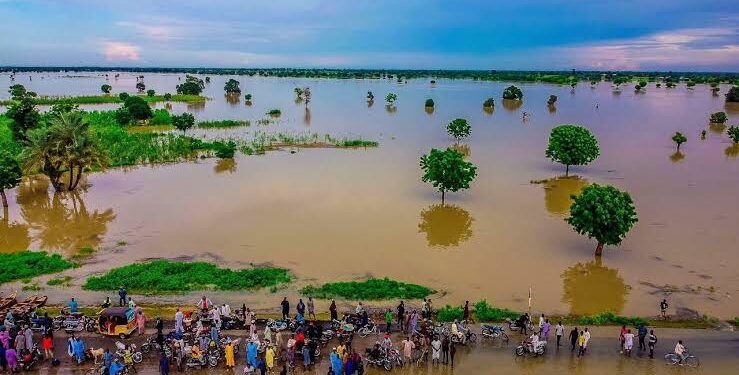The federal and state governments of Nigeria have been urged to learn from the devastating floods that have occurred in the past by the non-governmental organisation Safe and Better Nigeria.
Nigeria has seen significant floods in 2012, 2018, 2020, and 2022.
In a statement released on Friday, SBN urged all levels of government to ensure that sufficient preparations are made to mitigate the impact of the 2024 flood.
In a statement, the organization’s national coordinator, Solomon Ikpaka, encouraged governments that border the River Niger to ensure the safety of their citizens’ lives and property during the impending flood.
The Nigerian Meteorological Agency, or NIMETH, has forecast that the flood in 2024 will be of a large scale and has advised all governments to make sufficient preparations in order to lessen the effects of the flood.

The group emphasised the need for all governments to collaborate with local leaders to find appropriate locations for shelters, pointing out that many families are still grieving over the losses they suffered during the previous floods.
Solomon also stated that governments should prepare to give food, water, and medicine to all individuals seeking refuge in internally displaced persons camps. He also emphasised the importance of landfilling flood-prone neighbourhoods, building dams, and dredging the Niger River and its tributaries to prevent flooding in the country.
What they’re saying
The statement said;
“Past experiences should have taught us enough about flood management.Governments should learn from the circumstances so that people do not perish from diseases, snakebites, or famine.
“We all know that floods comes with hardship and inflation as well as heavy losses for businesses, that is why we are calling on the Federal
“State governments and the National Assembly to come up with a legal framework that makes the building of dams and the dredging of the River Niger mandatory.”
Final Thought
Solomon Ikpaka’s emphasis on landfilling flood-prone neighborhoods, building dams, and dredging the Niger River and its tributaries is particularly important. Investing in infrastructure that can manage and control floodwaters is essential for long-term flood mitigation. These measures can help to prevent the severe impacts of flooding and protect communities.

















